End of the Internet
8.09.24
If it's over, what comes next?
I've become hyper aware of a public fascination with the history of the personal computer and, to be fair, it's my obsession too. In hallway conversations it's common for things to drift into anecdotes on Licklider, Xerox Parc or a young Steve Jobs. In seemingly unrelated articles I find references to Computer Lib / Dream Machines and the Homebrew Computing Club. Why aren't we talking about the first smartphones or about early IBM? Why aren't we talking about the web 2.0 moment and the first social networks?
I think I know why and the answer is really simple. It's because we're living in a moment in computing history with remarkable similarities to that time. After all, history doesn't repeat itself, but it often does rhyme and with an understanding of the past we are attempting to venture at the shape of the future. In this post I lay out what I think the three primary similarities are between then and now and what hints that gives us about the future:
The first is that our communication networks are monopolized in ways that resemble IBM's monopoly on computing in the 1960s and 70s.
The second is that before the concept of personal computing was socialized, humankind's collective imagination of computing was of a universalizing compute medium. People didn't have a computer, rather they used "the Computer" through a terminal. A supercomputer and a personal computer are used in dramatically different ways. Similarly today, one connects to a single Internet or social network. Can we imagine an alternative?
The third is that there are new technologies which excite us and promise to disrupt the status quo, but they aren't very performant and therefore limited in use. Despite their lacking, we have enough data to predict improvements in their function and then reason about what will be possible in the future as they become more performant.
IBM (or It's a Big Mainframe)
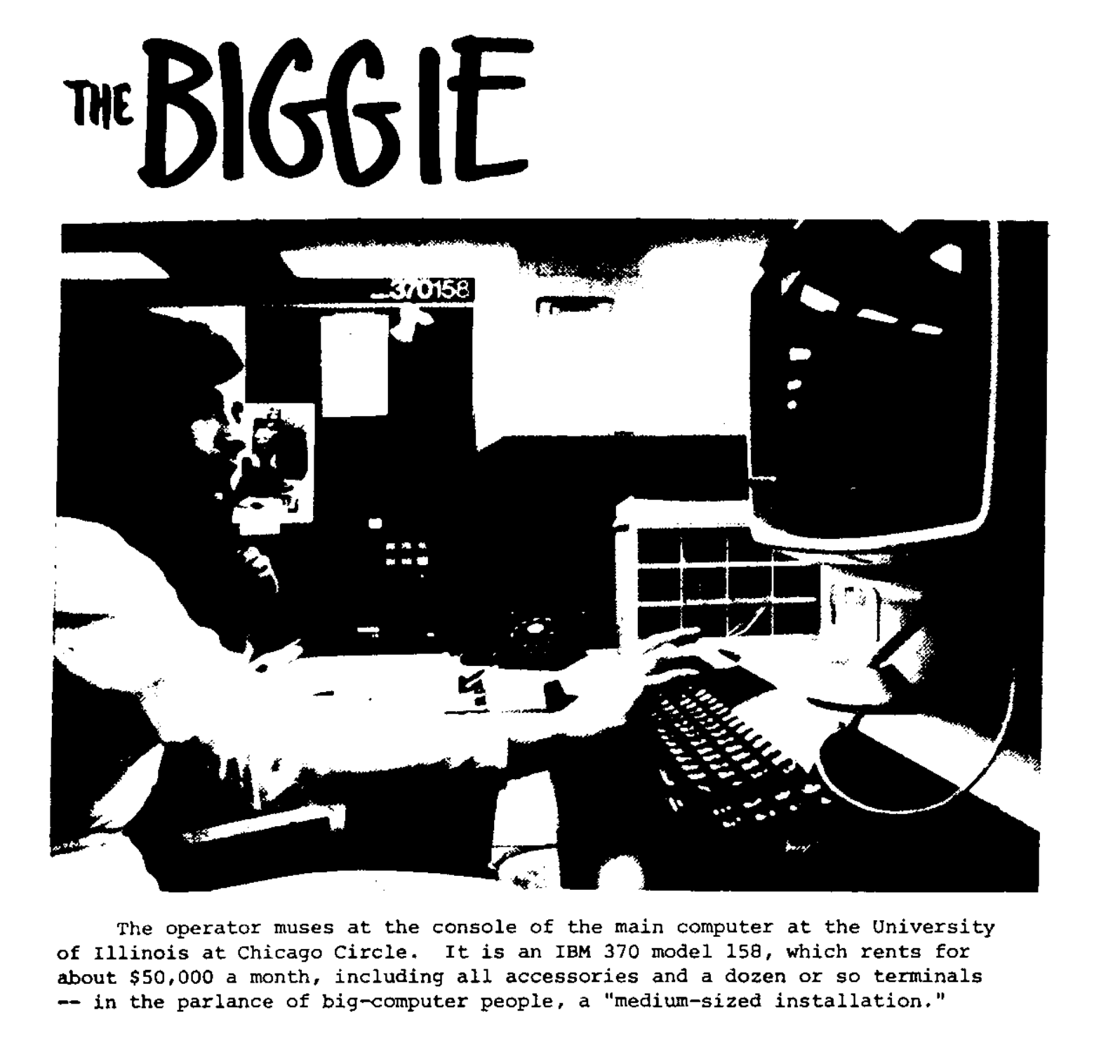
IBM acts as if it does not want competitors to be able to connect their accessories to its computer. It's as though GM could design the roads so as to prevent the passage of other vehicles than its own
Computer Lib / Dream Machine, Ted Nelson
The web today feels a lot like renting time on someone else's Internet. It works when you do it their way, but when you want to do it your way, well... It really limits what we can express and how we can "be" online. I won’t elaborate further on this point because it is already widely discussed and I believe intuitively felt by most people. Our discourse has even produced the term "enshittification" for how bad the platforms have become and why.
Here is how platforms die: First, they are good to their users; then they abuse their users to make things better for their business customers; finally, they abuse those business customers to claw back all the value for themselves. Then, they die.
Cory Doctorow, science fiction author, activist and journalist
Funny how this doesn't happen with the computers that we own. (There's nothing quite as satisfying as booting up that old PC game!) Many of the same concerns we share today about the future of the Internet were felt by people working in computing at the time. A mainframe computer was too expensive for an individual and so it was owned by a corporation. Anything you did on that computer was owned by the corporation. Everything about the computing experience was controlled by a single company and tailored for a single client: corporations.
Dream Machines
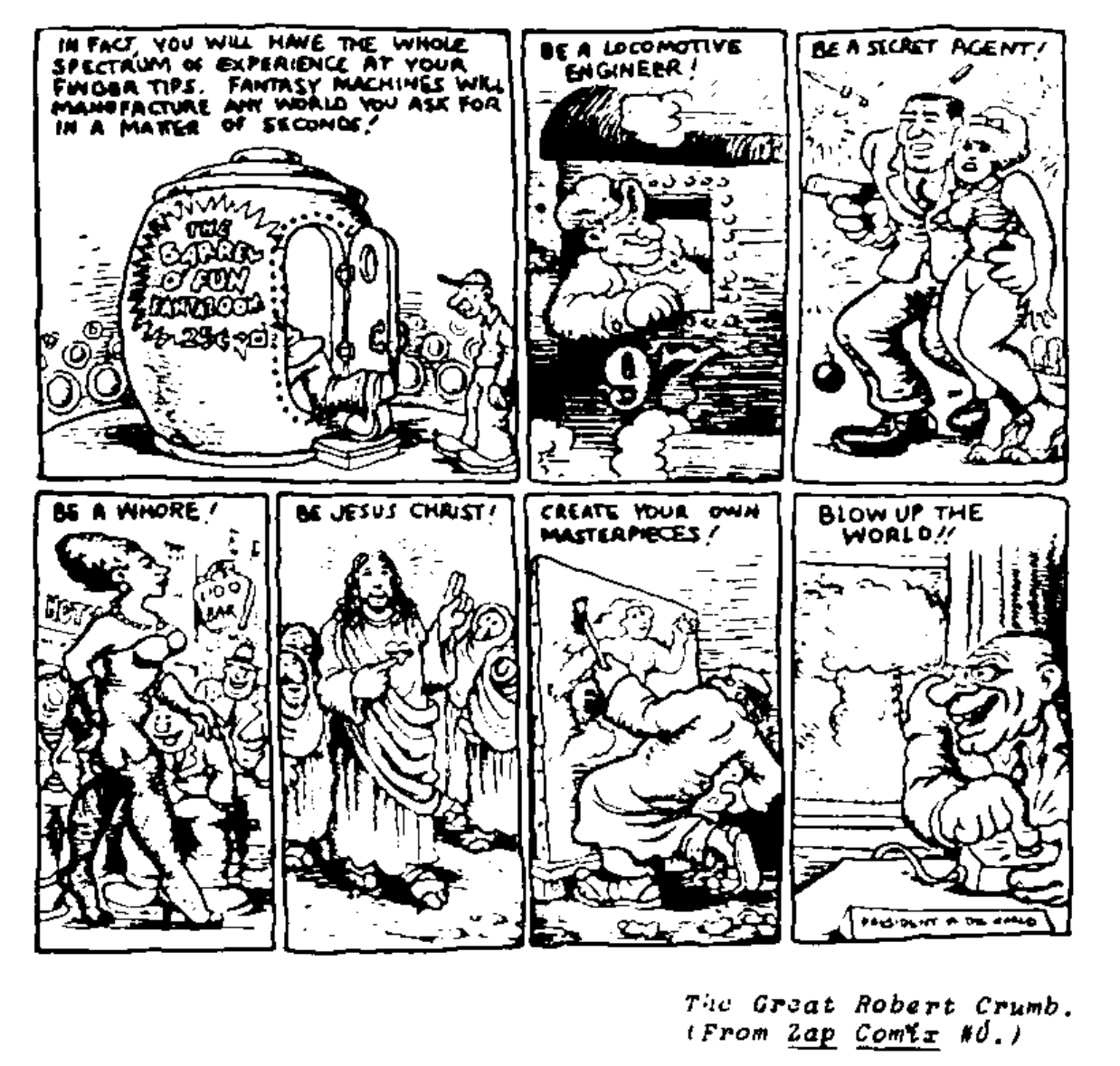
Man-computer symbiosis is an expected development in cooperative interaction between men and electronic computers. It will involve very close coupling between the human and the electronic members of the partnership.
Man-Computer Symbiosis, J.C.R. Licklider
The Planetary Computer
Our imagination around personal computing progressed through a series of sudden jerks forward and then all at once it arrived. It's hard to believe now, but in the 1950s and 1960s, the idea of a personal computer was unimaginable. Even the seminal text which inspired all of personal computing, Licklider's Man-Computer Symbiosis in 1960, is of a man at a terminal — a terminal giving him access to "the Computer." In Isaac Asimov's Last Question published 1956, the Microvac (a ship-sized supercomputer shared by the family) was an innovation above the "Planetary Analog Computer", a planet-sized computer shared by all living beings on the planet.
Bicycles for the Mind
This all changed by the next decade. Less than six years after The Mother of All Demos did Ted Nelson publish Computer Lib / Dream Machines, a feverish mashup of technical diagrams, cartoons and manifestos about what a liberated computer could do for you.
The special concern is the use of computers to help people write, think and show.
Computer Lib / Dream Machine, Ted Nelson
A liberated computer was something you could laugh with, you could play with, you could dream with it. You could be and do anything you imagined! It was the realization of Licklider's Man-Computer Symbiosis. Yet you just couldn't do these things on mainframes because they didn't serve you. You couldn't have control over that machine as it belonged to the corporation. Your relation to the big mainframe was purely economic. This is the reason for the emphasis on a personal computing machine. Access to your own computer gave you the right and the affordance to use the computer as the purest extension of you.
Biggie to Mini to Micro
The only problem with owning a computer was computers were really, really expensive. By the late 1960s, smaller and less-expensive mainframes called minicomputers had become available for businesses, academics and wealthy computing enthusiasts. Minicomputers weren't on the critical path for a large corporation and so they were more interactive and more customizable. An open community grew up around them to collaborate on how to shape and mold these machines. This community was a feeder for the eventual computer homebrew enthusiasts who would buy up the Altair 8800 and the first microcomputers (or what we now call personal computers). Microcomputers were basically useless at first, but they could be programmed and were affordable for a middle-income citizen.
It's important to note: these early hobbyists saw this as a computing revolution, but ultimately they had no clue what "real-world" use cases a microcomputer would bring. The first personal computers were objects of play. It was simply about the joy of computing and of getting into that cybernetic loop flow state.
the Internet
Ours is a world that is both everywhere and nowhere, but it is not where bodies live.
A Declaration of the Independence of Cyberspace, John Perry Barlow
I can't help but feel when it comes to our communication networks, we're charting the same course as we did with computing. It will seem obvious in retrospect, that a totalizing Internet system that one logs on to, was going to suffer the same fate as the big mainframe computers. In our attempts to bring the Internet into a more unified and cohesive experience, we've given up almost everything to platforms. How we communicate and how we interact with each other is not shaped by the parties interacting, but by the economic concerns of those platforms facilitating their interactions.
I'll go even further to say that while the early Internet protocols were designed exceptionally well for fractal scaling and remain a strong foundation, the articulation of it as a totalizing entity mislead our collective imagination. Since the beginning, we have always seen it as this one big thing and that was really exciting at first, because it was something everyone was participating in. It was and still is humanity's collaborative project. Of course Facebook, in its early optimism, extended that logic to "bring the world closer together." The Internet would be a place with no physical space and thus no borders. Instead it's become a frenetic stream of disconnected thoughts and images. Huddling the masses into a singularity doesn't seem to be working well and as a consequence we're beginning to dream about a different kind of online experience.
Crypto Natives
Ethereum and the various L2s have offered those desperate for change a sense of relief. I think these systems may be playing a role similar to that of the minicomputers of the late 1960s. They are large and expensive to use, but they allow you to play with the Internet again. They give us a glimpse of what communication networks outside the platforms could look like and feel like if we had more agency to shape their inner workings.
These early protocols, in addition to forming the foundations for an entirely new communications infrastructure, have also given rise to an open community of enthusiast builders who share their efforts and knowledge for what kind of neat things you can do with blockchains and smart contracts.
What initially fascinated me about Autonomous Worlds—which I define as the aspirational framing for fully on-chain games—is that mission of a ‘World with a Blockchain substrate’ made the experimentation explicit and personal. A blockchain is a fork of the web and when you do this it's not just another Internet, it becomes "a World." The people who live in this world are natives of the world. The original blockchain worlds are Bitcoin and Ethereum. Their inhabitants are crypto natives.
Without realizing it we've left behind the dichotomy of offline in meatspace or online as netizens. We can now opt-in to becoming crypto natives too.
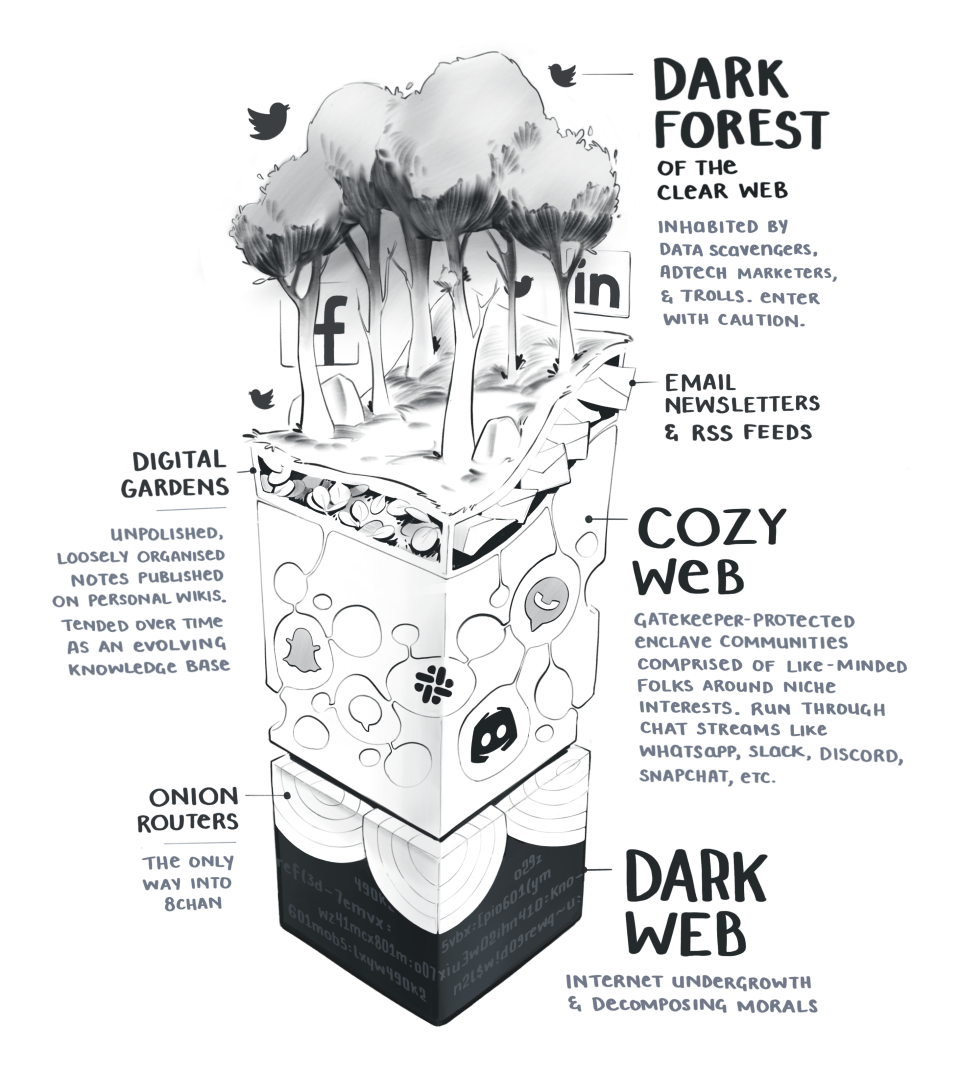
Outside of crypto, we've seen a comparative reaction to the web today. Normal human beings desperate for meaningful online connections have retreated to smaller, protected networks in Discords, WhatsApp groups and Message threads. This became known as the Cozy Web.
The thing which fascinates me about the above diagram is that there is an emerging consciousness of the Internet as a place with structure and defined boundaries. One can "move around" into spaces on the web that are separate from others. We can burrow underground into our cozy Discord holes free from the dangers of the Dark Forest. We can exist as crypto natives on a new land where rights to digital property are irrefutable and out of reach from governments and corporations.
It's a psychological jerk forward that is combining with rapid experimentation over protocols and peer-to-peer networks. While I cannot say where it goes, it would appear the concept of a universal Internet is eroding and a new plurality of networks and protocols will be taking its place.
Moore's Law
The idea of owning a computer may seem strange to some people, but with prices falling as they are it makes perfect sense.
Computer Lib / Dream Machines, Ted Nelson
Moore's law meant personal computing was inevitable. This is a really subtle, but important point, especially when things seem uncertain. If you were a PC enthusiast in 1974, you could point to the progress and draw a line out into the future. You knew that in the not so distant future, a microcomputer would have the same power as a supercomputer of today. This must have been such an animating force for everyone working on early PCs.
While I don't think we have something quite as powerful as Moore's Law today, we've hit a certain level of maturity across various decentralizing technologies that we can began to reason about their future capabilities with confidence.
Take transaction fees on blockchains. Ethereum transaction fees have hovered around $0.50 to $2.50. With new L2 scaling and alt-L1s like Solana we are in a new generation where transaction fees are 100x better and some specialized chains like Redstone have fees down > 1,000x. That's not so far off a Moore's Law curve. How far that trend will continue is hard to say, but we know what to do to get another 10-100x at least in improvements.
Wei Dai's talk in December of 2023 on the cost of verifiability introduced the metric 'kappa'. It is defined to be the overhead of proving and computing something over the cost of simply computing it. Verifiability is important because it gives networks scaling and functional superpowers.
This thorough examination of speedups in both hardware and algorithmic techniques predicts a k=100 and potentially as low as a k=10 if there are theoretical unlocks. I would be interested to see kappa defined for the full range of programmable cryptography as these other techniques too benefit from dedicated hardware.
The analogs to Moore's law of networking like Keck's Law, Edholm's Law and Gilder's Law predict similar rapid doublings of the data carrying capacity of our network infrastructure. This is especially important for MPC protocols and decentralized networks which can be bottlenecked by network congestion.
Lateral movements like Topology's BFT-CRDTs and Martin Kleppmann's Automerge are taking the network design space into territory seemingly unreachable by other decentralizing technologies. Steady work is happening here to make it practical and it seems inevitable that it will be realized.
This is our "Network Lib" moment. The idea of running a network may seem strange to some people, but with prices falling as they are it makes perfect sense.
One More Thing
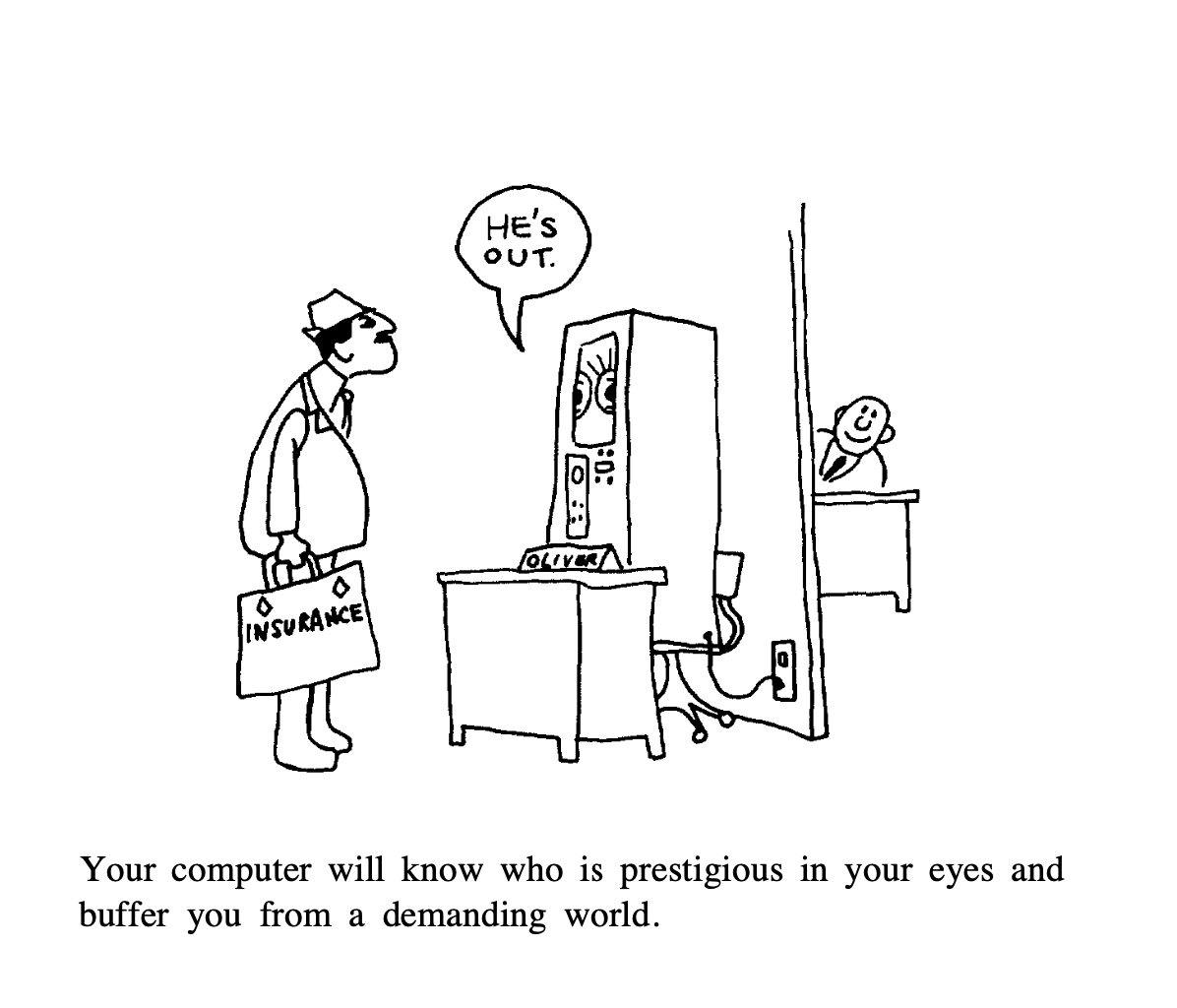
The new industrial revolution is a two-edged sword. It may be used for the benefit of humanity, but only if humanity survives the personal, moral, and political problems which it creates.
Cybernetics: Or Control and Communication in the Animal and the Machine, Norbert Wiener
As I was re-reading these early texts by Wiener, Licklider and Nelson I was struck by how their language about the not-so-distant future mirrored our language. There were fears about automation and artificial intelligence as well as hope for its potential to shape the future for good. Their ideas about how computers and communication networks would be used sound like our ideas today. It made me wonder if what we often speak of as computing revolutions are really evolutions toward a predictable destination; caught in a unifying arc of history.
These early innovators were thinking from first principles about what they had on their hands and if you follow the logic, you cross our current point in time and end up at their conclusion sometime in the future. I attempt to summarize that endpoint as follows:
"Computing gives us more intelligence. Communication gives us more consensus."
(I use the word "consensus" here, whereas Licklider uses the phrase "cooperative modeling.")
Perfect Networks
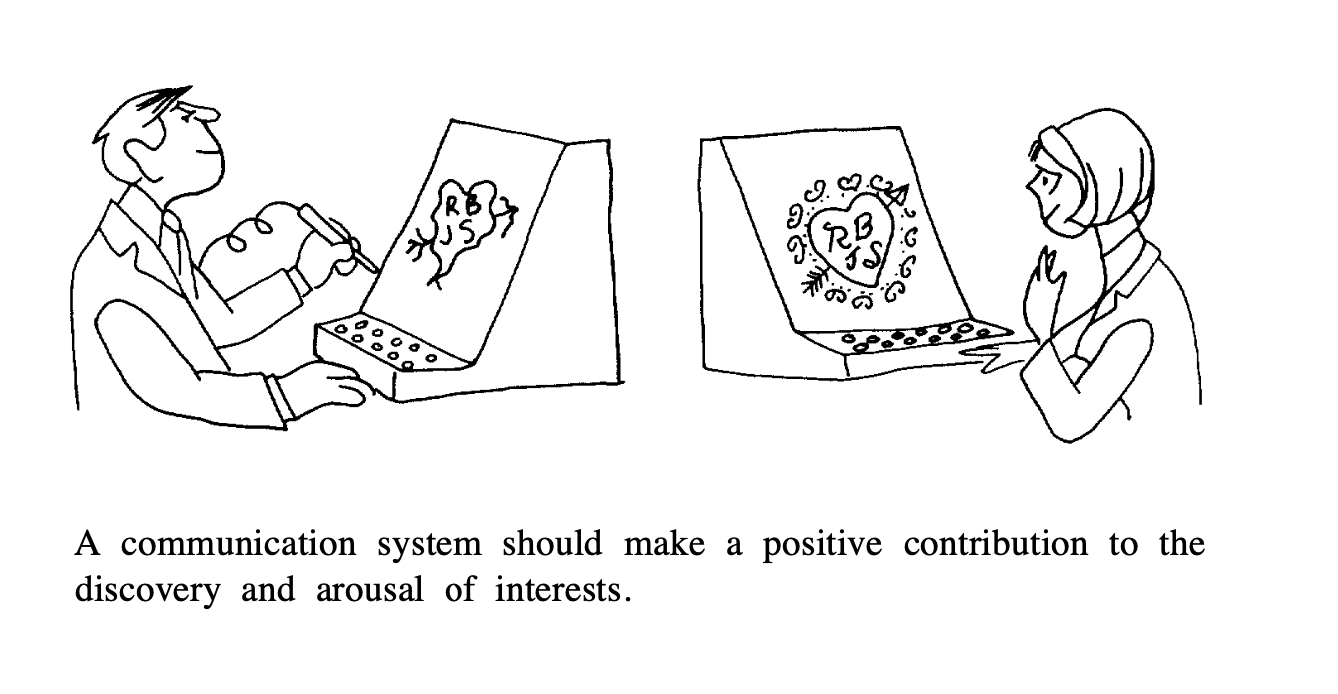
I remembered a provocative question posed by Gubsheep recently as,"What is the purpose of blockchains, programmable cryptography and all this activity around decentralized networks in crypto?" We know the endgame of AI. It is the promise of summoning an all-knowing, superintelligent being (a god). Put in a more abstract form, it's to maximize intelligence. So what's the endgame of crypto? What's the promise? Where is all this going?
Well, maybe the endgame of crypto is just the endgame of communication networks; that is, to create Perfect Networks. These are communication networks with ideal efficiency in transfer of information and maximal consensus. Intelligences who model their view of the world communicate to synchronize that view on the world. The result creates a snapshot of what Licklider argues is "objective reality", but we would know today as "intersubjective reality." Warning: the world in question may not be the physical one, but it could be any number of worlds (e.g. the world of the US dollar, the world of our desires, etc).
Just read some of these excerpts from Licklider's Computer as a Communication Device as motivation to create perfect networks.
Any communication between people about the same thing is a common revelatory experience about informational models of that thing. Each model is a conceptual structure of abstractions formulated initially in the mind of one of the persons who would communicate, and if the concepts in the mind of one would-be communicator are very different from those in the mind of another, there is no common model and no communication.
First, life will be happier for the on-line individual because the people with whom one interacts most strongly will be selected more by commonality of interests and goals than by accidents of proximity.
Second, communication will be more effective and productive, and therefore more enjoyable.
Third, much communication and interaction will be with programs and programmed models, which will be (a) highly responsive, (b) supplementary to one’s own capabilities, rather than competitive, and (c) capable of representing progressively more complex ideas without necessarily displaying all the levels of their structure at the same time and which will therefore be both challenging and rewarding.
And, fourth, there will be plenty of opportunity for everyone (who can afford a console) to find his calling, for the whole world of information, with all its fields and disciplines, will be open to him with programs ready to guide him or to help him explore.
Unemployment would disappear from the face of the earth forever, for consider the magnitude of the task of adapting the network’s software to all the new generations of computer, coming closer and closer upon the heels of their predecessors until the entire population of the world is caught up in an infinite crescendo of on-line interactive debugging.
And take Computer Lib / Dream Machine, where Ted Nelson categorizes his "Three Dreams" as Artificial Intelligence, Information Retrieval and Computer Assisted Instruction. AI improves our ability to model the world. IR pulls down learnings across all models. CAI determines what information is relevant to retrieve in order to improve our own model of base reality. The three dreams are the interaction and perfection of two forces: intelligence and consensus.
What I find most appealing about this line of thinking is that it simplifies so much of what we're doing. That's part of the appeal of AI. It's so simple to grok. We are making the machine smart. That's it, that's obviously valuable. Why can't we do the same thing with our work on crypto networks? We are making the machine social.
What's Next
After the death of the first internet, lots of tiny new internets will grow up in its place.
Philip Rosedale, creator of Second Life
We're still early in the journey. If we take the mid 2010s as the "1960 Man-Computer symbiosis moment" then we'd be about 10 years away from the 1975 first commercially successful personal computer. I'd say crypto has made way more progress comparatively, so I'm feeling optimistic.
If you've read all this way, then I must make one request. If we are truly having our personal computing moment for the Internet, then can you make our Mother of All Demos? Can you write our Network Lib? What does it mean to own and run your own network? Think about it! Write about it! Build it!
To help you along, here's some extra inspiration from folks who I think are manifesting this future:
0xParc Programmable Cryptography
Cursive Team Ideas and Moonshots
The Jaymo's World Running Guide
<3 Goblin
color mode